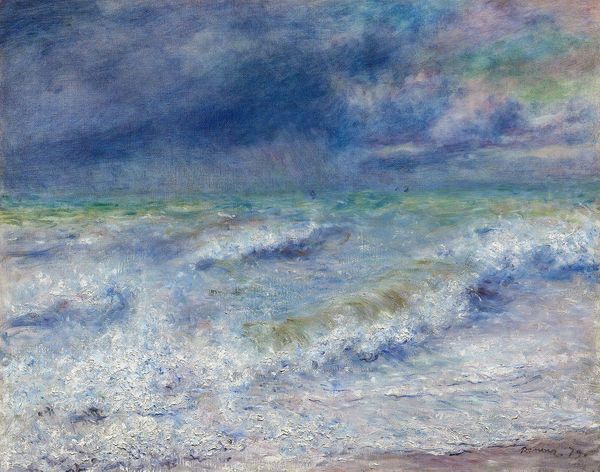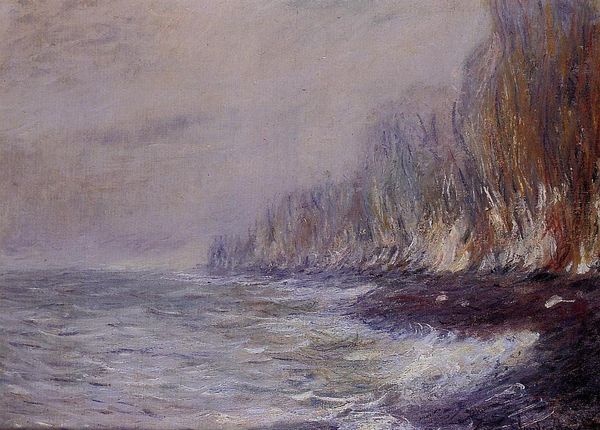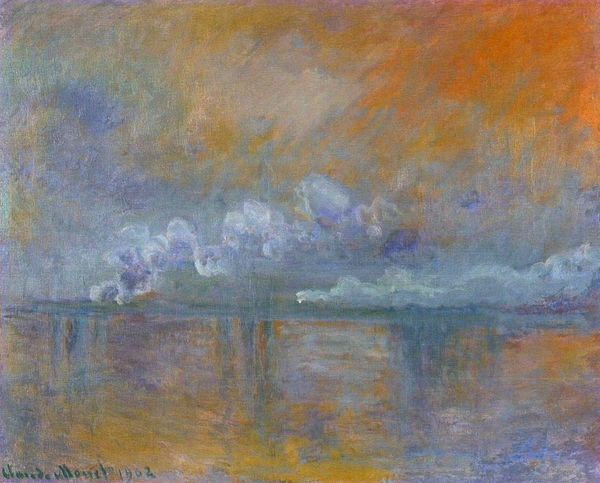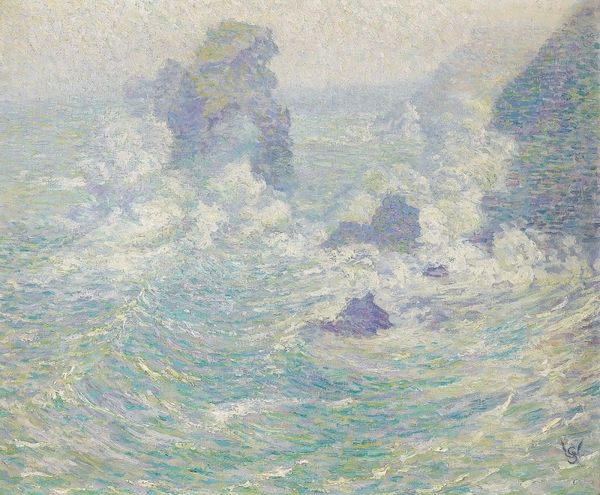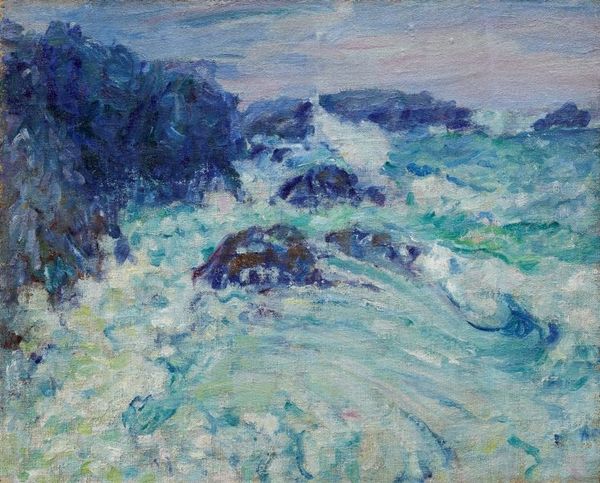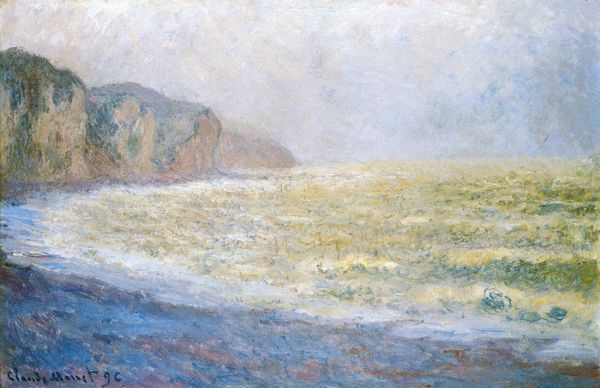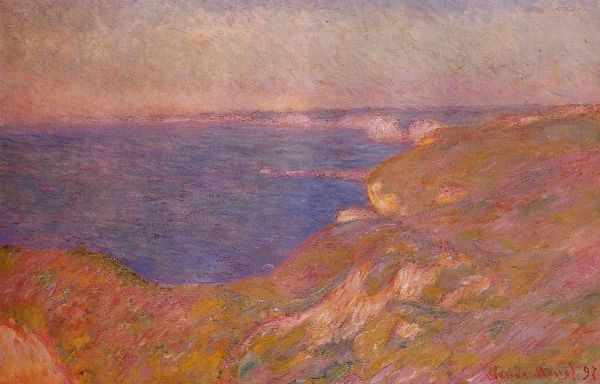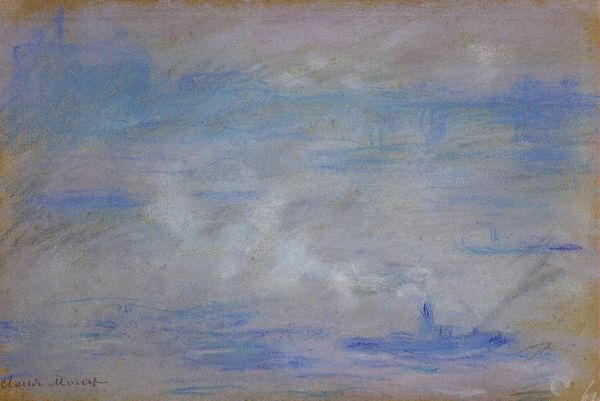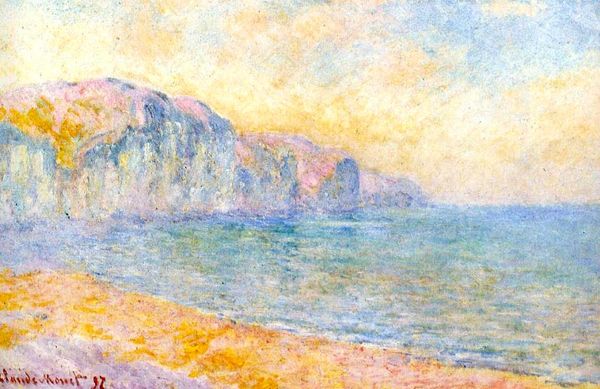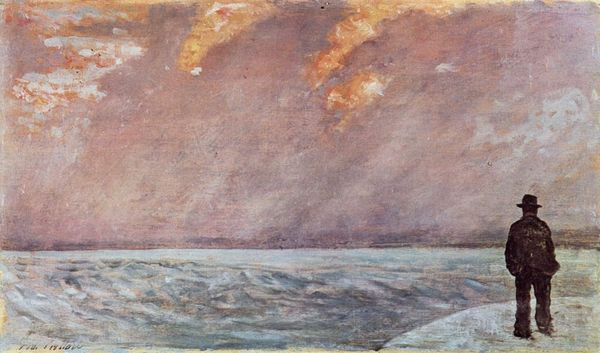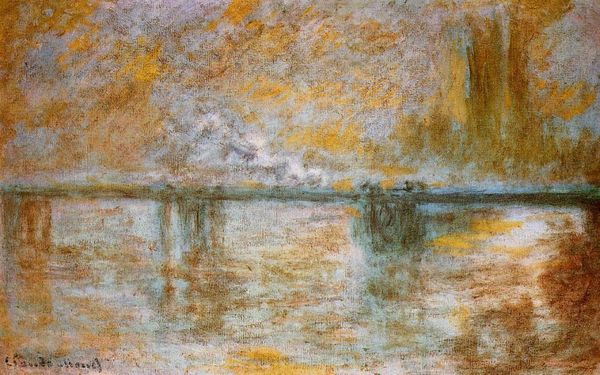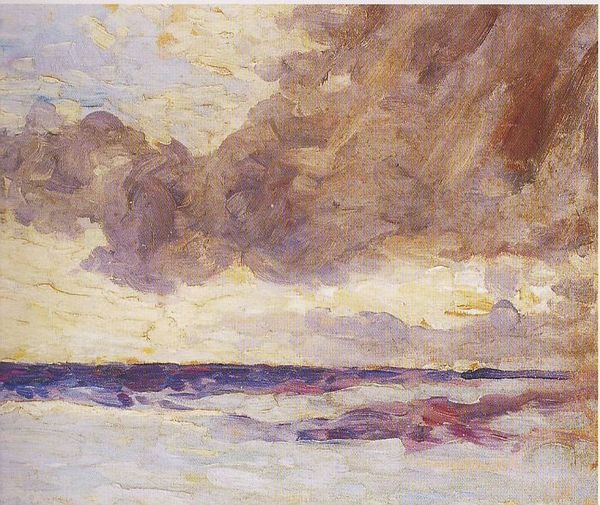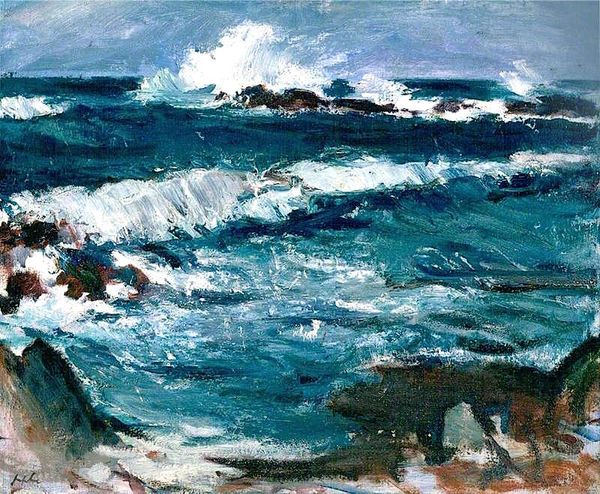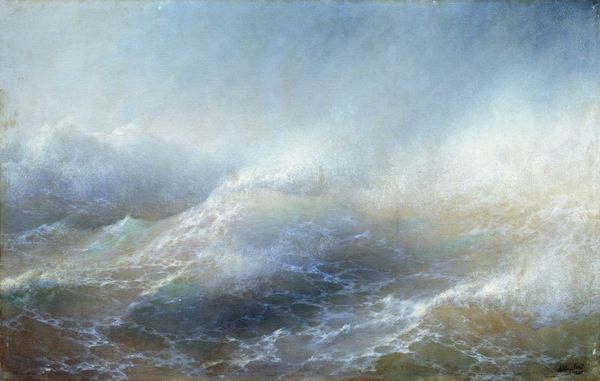
painting, plein-air, oil-paint
#
sky
#
painting
#
impressionism
#
plein-air
#
oil-paint
#
landscape
#
cityscape
#
modernism
#
realism
Copyright: Public domain
Curator: Standing here, I feel swallowed by the immensity of this painting! Editor: It certainly evokes that sensation. This is Claude Monet’s “Cliffs at Pourville, Rain,” created in 1886. A rather turbulent seascape. Curator: Turbulent is the perfect word! I feel the ocean spray on my face just looking at it. All that swirling blue… it’s almost suffocating, in a strangely beautiful way. The color palette feels intentionally muted, a bit melancholy, and intensely evocative of that exact moment. Editor: Absolutely. What we are seeing here reflects a significant shift in Monet's work and, indeed, in the late 19th century’s view of nature. He’s moved beyond simply depicting a scene and is instead trying to capture the sensation of experiencing it. There's a real blurring of boundaries; between sea and sky, observation, and lived reality. This kind of "en plein air" work gained traction among avant-garde painters seeking an authenticity beyond studio-bound artifice. Curator: Authenticity…yes. I mean, the realism is striking. I can almost hear the whoosh of the waves against the rocks. Monet had an uncanny knack for capturing the moods of nature; raw, and unvarnished. There’s this feeling, too, of solitude and elemental power, something deeply felt that year. Does this reflect how art institutions shifted perspectives, too? Editor: Precisely. The public's perception shifted as critics began celebrating artists depicting lived experiences versus staged historical paintings or classical ideals. Galleries started curating spaces around feelings. It all builds from the revolutions. People started craving the real world on canvas! Curator: A brave move to embrace what's actually outside, rather than the comfortable confines of a studio. Editor: Absolutely. Art became about reflecting the world and societal shifts more authentically. And artists like Monet benefited from that change and accelerated it too! Curator: Considering all we’ve said…that sensation of immersion really lingers, doesn't it? Makes me shiver. Editor: It does prompt us to reflect, perhaps to see more of ourselves mirrored within that downpour. Thank you, Monet.
Comments
No comments
Be the first to comment and join the conversation on the ultimate creative platform.
